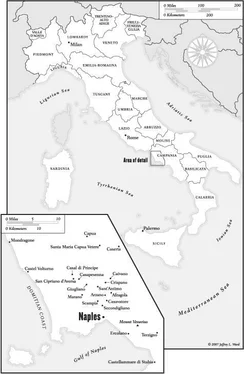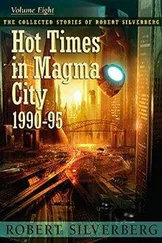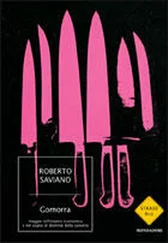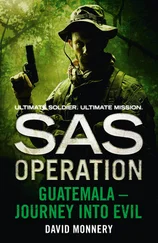Roberto Saviano - Gomorrah - A Personal Journey into the Violent International Empire of Naples’ Organized Crime System
Здесь есть возможность читать онлайн «Roberto Saviano - Gomorrah - A Personal Journey into the Violent International Empire of Naples’ Organized Crime System» весь текст электронной книги совершенно бесплатно (целиком полную версию без сокращений). В некоторых случаях можно слушать аудио, скачать через торрент в формате fb2 и присутствует краткое содержание. Жанр: Старинная литература, на английском языке. Описание произведения, (предисловие) а так же отзывы посетителей доступны на портале библиотеки ЛибКат.
- Название:Gomorrah: A Personal Journey into the Violent International Empire of Naples’ Organized Crime System
- Автор:
- Жанр:
- Год:неизвестен
- ISBN:нет данных
- Рейтинг книги:5 / 5. Голосов: 1
-
Избранное:Добавить в избранное
- Отзывы:
-
Ваша оценка:
- 100
- 1
- 2
- 3
- 4
- 5
Gomorrah: A Personal Journey into the Violent International Empire of Naples’ Organized Crime System: краткое содержание, описание и аннотация
Предлагаем к чтению аннотацию, описание, краткое содержание или предисловие (зависит от того, что написал сам автор книги «Gomorrah: A Personal Journey into the Violent International Empire of Naples’ Organized Crime System»). Если вы не нашли необходимую информацию о книге — напишите в комментариях, мы постараемся отыскать её.
Gomorrah: A Personal Journey into the Violent International Empire of Naples’ Organized Crime System — читать онлайн бесплатно полную книгу (весь текст) целиком
Ниже представлен текст книги, разбитый по страницам. Система сохранения места последней прочитанной страницы, позволяет с удобством читать онлайн бесплатно книгу «Gomorrah: A Personal Journey into the Violent International Empire of Naples’ Organized Crime System», без необходимости каждый раз заново искать на чём Вы остановились. Поставьте закладку, и сможете в любой момент перейти на страницу, на которой закончили чтение.
Интервал:
Закладка:
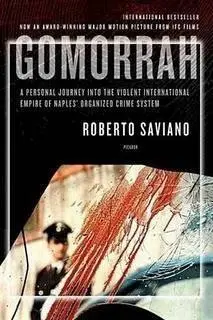

Piero Pompili
Roberto Saviano was born in 1979 and studied philosophy at the University of Naples. Gomorrah, his first book, has won many awards, including the prestigious 2006 Viareggio Literary Prize. After its publication, he was placed under police protection.
GOMORRAH. Copyright © 2006 by Arnoldo Mondadori Editore S.p.A., Milan. Translation copyright © 2007 by Virginia Jewiss. Maps copyright © 2007 by Jeffrey L. Ward. All rights reserved. Printed in the United States of America. For information, address Picador, 175 Fifth Avenue, New York, N.Y. 10010.
www.picadorusa.com
Picador® is a U.S. registered trademark and is used by Farrar, Straus and Giroux under license from Pan Books Limited.
For information on Picador Reading Group Guides, please contact Picador. E-mail: readinggroupguides@picadorusa.com
Designed by Michelle McMillan
ISBN-13: 978-0-312-42779-5
ISBN-10: 0-312-42779-4
Originally published in Italy by Arnoldo Mondadori Editore S.p.A. as Gomorra
First published in the United States by Farrar, Straus and Giroux
First Picador Edition: December 2008
10 9 8 7 6 5 4 3 2 1
To S., damn it
Comprehension … means the unpremeditated, attentive facing up to, and resisting of, reality—whatever it may be.
—Hannah Arendt
Winners have no shame, no matter how they win.
—Niccolò Machiavelli
People are worms and they have to stay worms.
—from a wiretapped conversation
The world is yours.
—Scarface, 1983
GOMORRAH
A Personal Journey into the Violent International Empire of Naples’ Organized Crime System
ROBERTO SAVIANO
Translated from the Italian by Virginia Jewiss
Picador

Farrar, Straus and Giroux
New York
CONTENTS
Part One
The Port
Angelina Jolie
The System
The Secondigliano War
Women
Part Two
Kalashnikov
Cement
Don Peppino Diana
Hollywood
Aberdeen, Mondragone
Land of Fires

PART ONE
THE PORT
The container swayed as the crane hoisted it onto the ship. The spreader, which hooks the container to the crane, was unable to control its movement, so it seemed to float in the air. The hatches, which had been improperly closed, suddenly sprang open, and dozens of bodies started raining down. They looked like mannequins. But when they hit the ground, their heads split open, as if their skulls were real. And they were. Men, women, even a few children, came tumbling out of the container. All dead. Frozen, stacked one on top of another, packed like sardines. These were the Chinese who never die. The eternal ones, who trade identity papers among themselves. So this is where they’d ended up, the bodies that in the wildest fantasies might have been cooked in Chinese restaurants, buried in fields beside factories, or tossed into the mouth of Vesuvius. Here they were. Spilling from the container by the dozen, their names scribbled on tags and tied with string around their necks. They’d all put aside money so they could be buried in China, back in their hometowns, a percentage withheld from their salaries to guarantee their return voyage once they were dead. A space in a container and a hole in some strip of Chinese soil. The port crane operator covered his face with his hands as he told me about it, eyeing me through his fingers. As if the mask of his hands might give him the courage to speak. He’d seen the bodies fall, but there’d been no need to sound the alarm. He merely lowered the container to the ground, and dozens of people appeared out of nowhere to put everyone back inside and hose down the remains. That’s how it went. He still couldn’t believe it and hoped he was hallucinating, due to too much overtime. Then he closed his fingers, completely covering his eyes. He kept on whimpering, but I couldn’t understand what he was saying.
Everything that exists passes through here. Through the port of Naples. There’s not a product, fabric, piece of plastic, toy, hammer, shoe, screwdriver, bolt, video game, jacket, pair of pants, drill, or watch that doesn’t come through here. The port of Naples is an open wound. The end point for the interminable voyage that merchandise makes. Ships enter the gulf and come to the dock like babies to the breast, except that they’re here to be milked, not fed. The port of Naples is the hole in the earth out of which what’s made in China comes. The Far East, as reporters still like to call it. Far. Extremely far. Practically unimaginable. Closing my eyes, I see kimonos, Marco Polo’s beard, Bruce Lee kicking in midair. But in fact this East is more closely linked to the port of Naples than to any other place. There’s nothing far about the East here. It should be called the extremely near East, the least East. Everything made in China is poured out here. Like a bucket of water dumped into a hole in the sand. The water eats the sand, and the hole gets bigger and deeper. The port of Naples handles 20 percent of the value of Italian textile imports from China, but more than 70 percent of the quantity. It’s a bizarre thing, hard to understand, yet merchandise possesses a rare magic: it manages both to be and not to be, to arrive without ever reaching its destination, to cost the customer a great deal despite its poor quality, and to have little tax value in spite of being worth a huge amount. Textiles fall under quite a few product classifications, and a mere stroke of the pen on the shipping manifest can radically lower price and VAT. In the silence of the port’s black hole, the molecular structure of merchandise seems to break down, only to recompose once it gets beyond the perimeter of the coast. Goods have to leave the port immediately. Everything happens so quickly that they disappear in the process, evaporate as if they’d never existed. As if nothing had happened, as if it had all been simply an act. An imaginary voyage, a false landing, a phantom ship, evanescent cargo. Goods need to arrive in the buyer’s hands without leaving any drool to mark their route, they have to reach their warehouse quickly, right away, before time can even begin—time that might allow for an inspection. Tons of merchandise move as if they were a package hand-delivered by the mailman. In the port of Naples—330 acres spread out along seven miles of coastline—time expands and contracts. Things that take an hour elsewhere seem to happen here in less than a minute. Here the proverbial slowness that makes the Neapolitan’s every move molasses-like is quashed, confuted, negated. The ruthless swiftness of Chinese merchandise overruns the temporal dimension of customs inspections, killing time itself. A massacre of minutes, a slaughter of seconds stolen from the records, chased by trucks, hurried along by cranes, helped by forklifts that disembowel the containers.
COSCO, the largest Chinese state-owned shipping company, with the world’s third-largest fleet, operates in the port of Naples in consort with MSC, a Geneva-based company that owns the world’s second-largest commercial fleet. The Swiss and Chinese decided to pool together and invest heavily in Naples, where they manage the largest cargo terminal. With over 3,000 feet of pier, nearly a million and a half square feet of terminal, and more than 300,000 square feet of outdoor space at their disposal, they absorb almost all the traffic in transit for Europe. You have to reconfigure your imagination to try to understand the port of Naples as the bottom rung of the ladder of Chinese production. The biblical image seems appropriate: the eye of the needle is the port, and the camel that has to pass through it are the ships. Enormous vessels line up single file out in the gulf and await their turn amid the confusion of pitching sterns and colliding bows; rumbling with heaving iron, the sheet metal and screws slowly penetrate the tiny Neapolitan opening. It is as if the anus of the sea were opening out, causing great pain to the sphincter muscles.
Читать дальшеИнтервал:
Закладка:
Похожие книги на «Gomorrah: A Personal Journey into the Violent International Empire of Naples’ Organized Crime System»
Представляем Вашему вниманию похожие книги на «Gomorrah: A Personal Journey into the Violent International Empire of Naples’ Organized Crime System» списком для выбора. Мы отобрали схожую по названию и смыслу литературу в надежде предоставить читателям больше вариантов отыскать новые, интересные, ещё непрочитанные произведения.
Обсуждение, отзывы о книге «Gomorrah: A Personal Journey into the Violent International Empire of Naples’ Organized Crime System» и просто собственные мнения читателей. Оставьте ваши комментарии, напишите, что Вы думаете о произведении, его смысле или главных героях. Укажите что конкретно понравилось, а что нет, и почему Вы так считаете.
